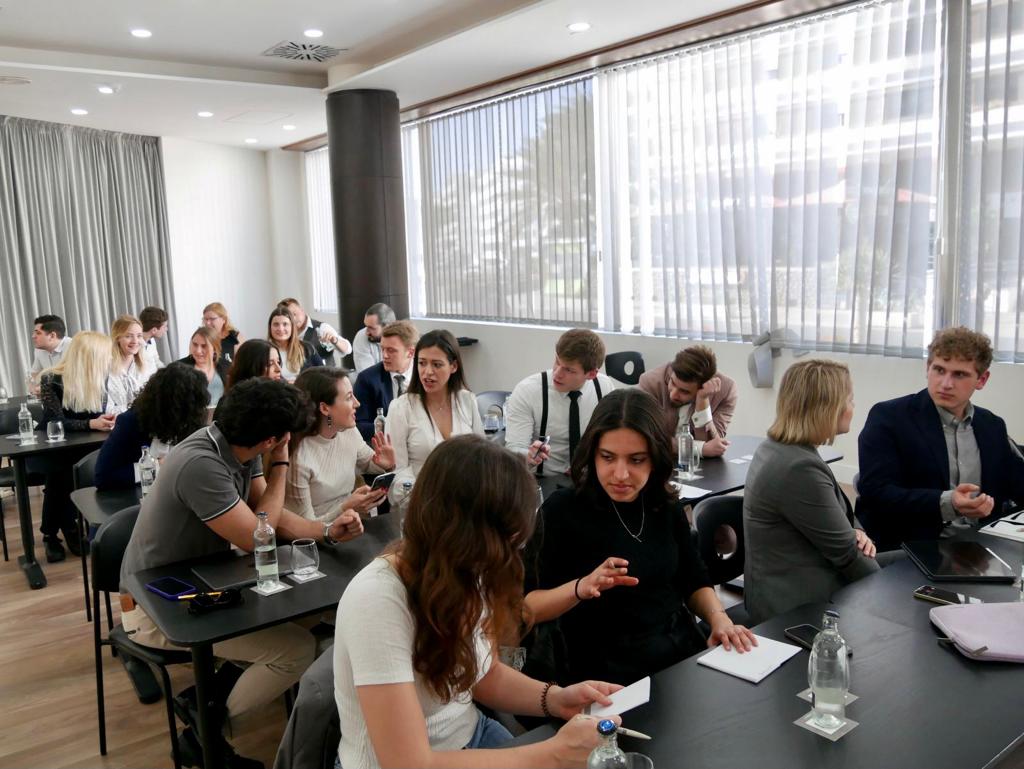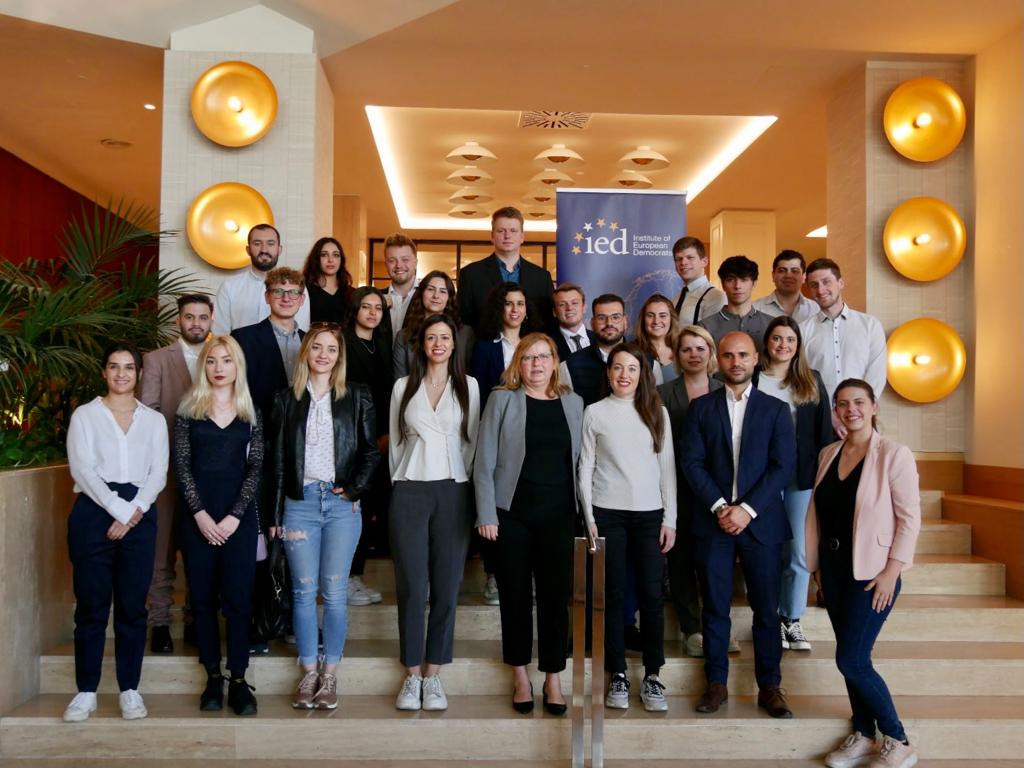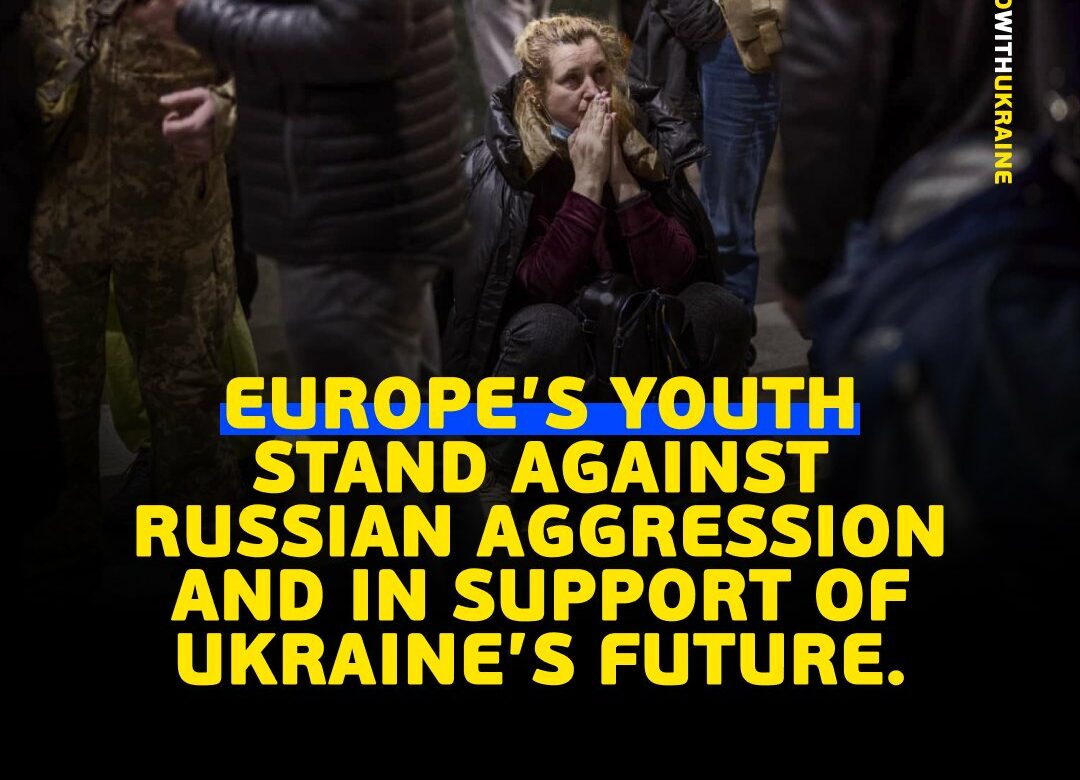Spring Academy in Lanzarote, Canary Islands
10/03/2023 – YDE attended the event in cooperation with IED

On March 10th 2023, in cooperation with the Institute of European Democrats (IED), Young Democrats for Europe (YDE) organized a gathering of young Europeans. The Academy took place at Lanzarote, a magnificent island in the Canary Islands. Lanzarote welcomed 24 young people from all over Europe including President and Secretary General of European Liberal Youth (LYMEC).
The Academy started with an opening speech of Mikel Burzako, Director of Institute of European Democrats followed with the speech of YDE spokesperson Sergio Soares (JFW) who shortly introduced our attendees to YDE, its history, mission and vision.
Participants held a minute of silence for the victims of a tragic shooting in Hamburg that happened a night before the Academy.
The first presentation on the topic Erasmus and Youth Mobility was held by Iñigo Arbiol from Department of International Relations and Humanities of the University of Deusto. He presented the advantages and disadvantages of the Erasmus program and how the program could be improved.
Presentation was followed by a workshop on implementing local policies in the agenda of European Union. Participants were divided into five working groups with the task to discuss local projects they think could be useful to implement on the EU level. Afterwards, each group had to present and shortly explain their conclusions to the rest of the participants.
Second presentation on the topic Gender Equality and Social Cohesion within the EU was held by David Gutzeit, Chairperson of the Freie Wähler Youth. Presentation was followed by a short and productive workshop on the topic. Each of the five groups discussed a different aspect of gender equality such as gender pay gap, gender equality and career, gender equality and climate change and gender equality and education.
To conclude our Academy, Gabi Schmidt, Deputy Federal Chairwoman of the Freie Wähler Party and Vice president of IED made closing remarks encouraging young people to be involved and take action because they are the future of European Union.
After the long but productive day, participants enjoyed the EDP sponsored dinner where they could exchange information about their different countries and cultures while strengthen bonds between each other and at the end realizing what it really means to be European.
Many thanks to all the participants for attending, see you next time!





